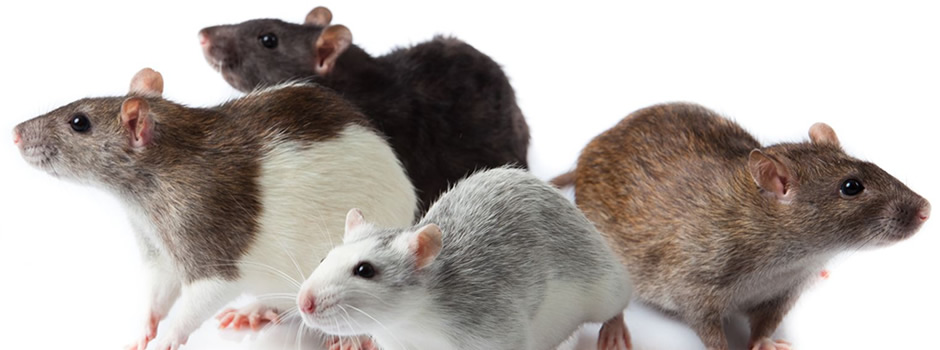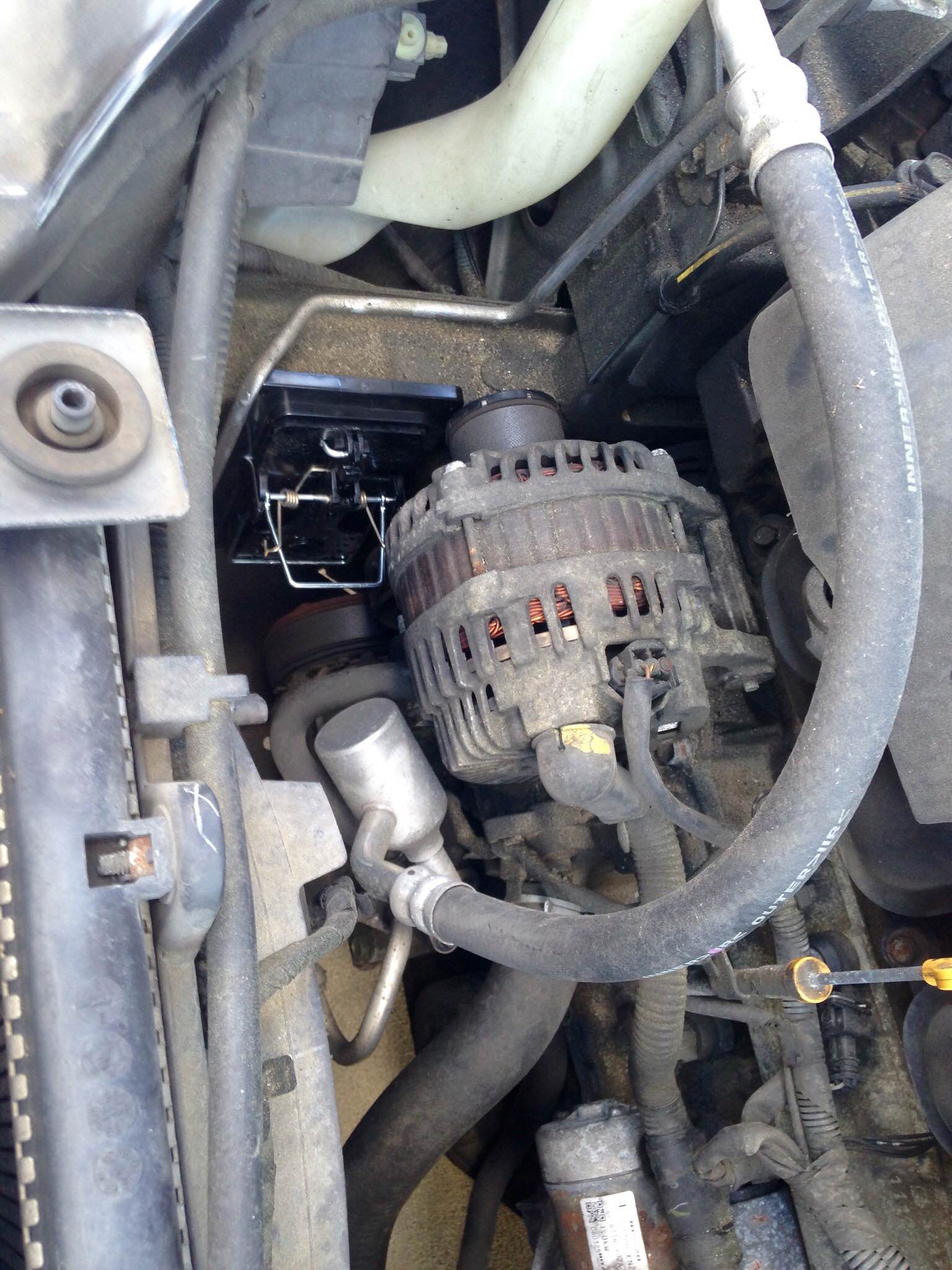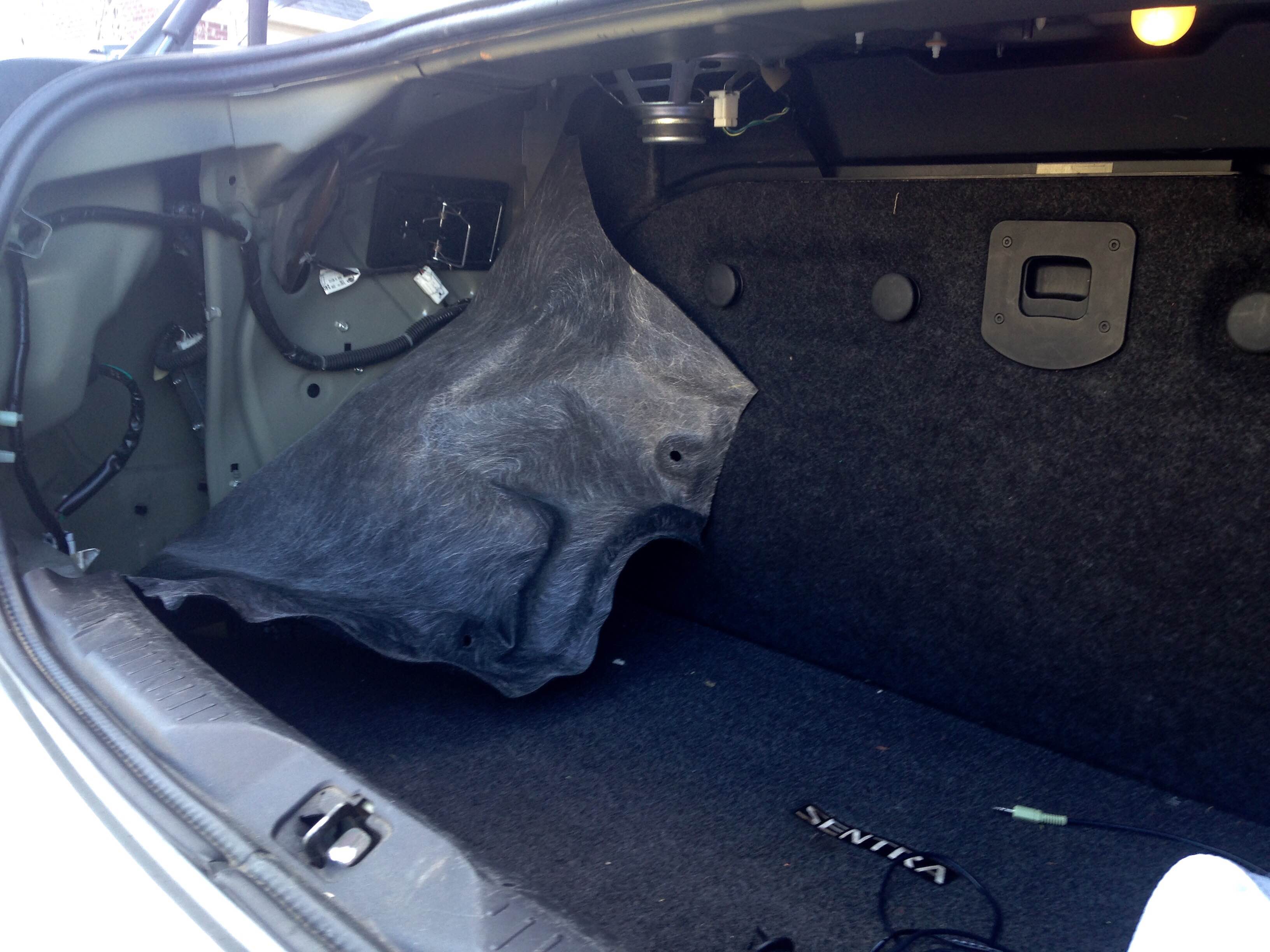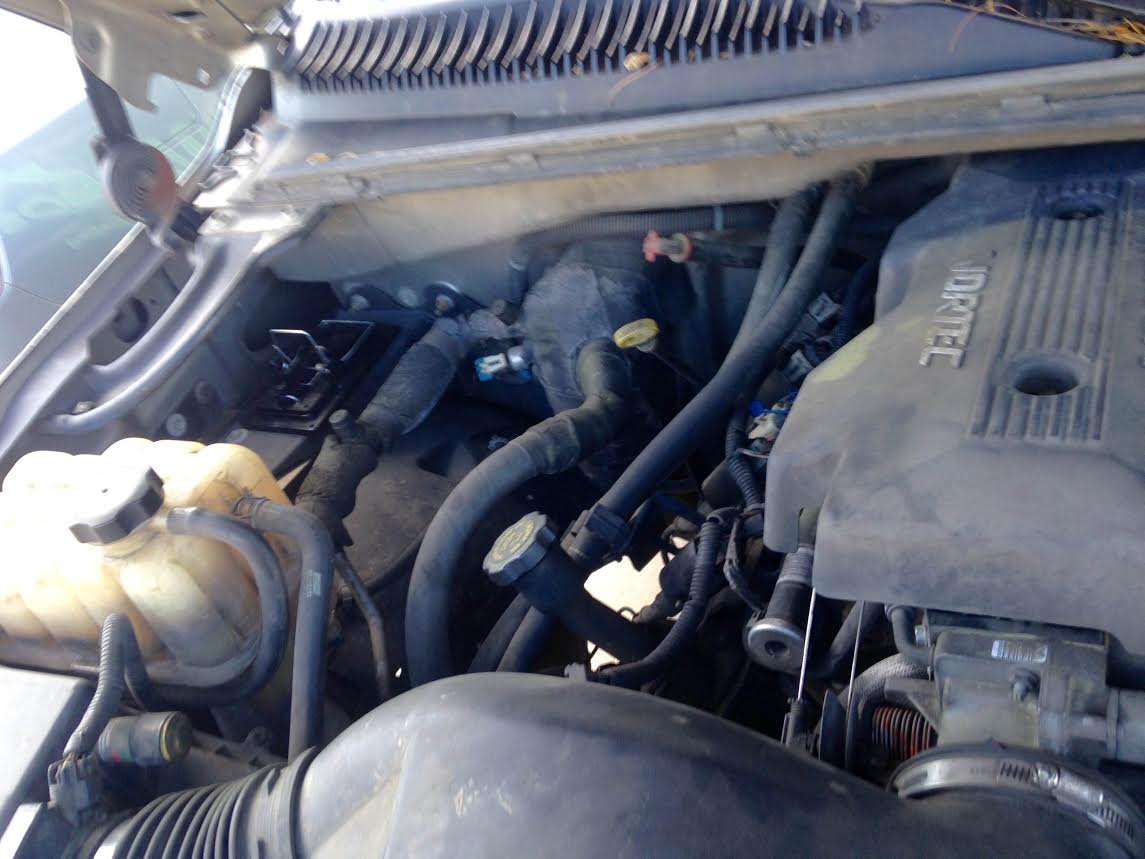Rodents and squirrels chewing car wires
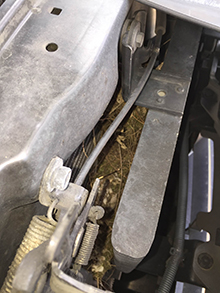 Rodents and squirrels chewing on car electrical wiring under a vehicles hood, is a common problem that is happening at a increasing rate in Greater Nashville and Middle Tennessee. Soy-based wire coatings and insulation introduced by vehicle manufacturers at their attempt of “going green” or being more “environmentally friendly” has created a problem for consumers, from rodents chewing on soy-based wire coatings among other problems. Common nuisance animals that we will be responsible for chewing electrical wiring in vehicles include mice, rats, squirrels, and chipmunks. Damage can easily be determined by lifting your vehicles hood and seeing the evidence of nesting materials or having the result of your vehicle being disabled and not starting. Common nuisance complaints from animals chewing and gnawing in vehicles includes:
Rodents and squirrels chewing on car electrical wiring under a vehicles hood, is a common problem that is happening at a increasing rate in Greater Nashville and Middle Tennessee. Soy-based wire coatings and insulation introduced by vehicle manufacturers at their attempt of “going green” or being more “environmentally friendly” has created a problem for consumers, from rodents chewing on soy-based wire coatings among other problems. Common nuisance animals that we will be responsible for chewing electrical wiring in vehicles include mice, rats, squirrels, and chipmunks. Damage can easily be determined by lifting your vehicles hood and seeing the evidence of nesting materials or having the result of your vehicle being disabled and not starting. Common nuisance complaints from animals chewing and gnawing in vehicles includes:
- Squirrels chewing on electric wires.
- Rodents chewing on electric wire harness.
- Chewing on air and heating lines.
- Damage to seats and cushions.
- Damage to carpet’s from chewing and gnawing.
- Damage to plastic fluid containers.
- Snakes in engine compartment.
Damage to your vehicle calls by rodents chewing on wires can be a costly problem. Often vehicle owners that have experience damage previously, will encounter a reoccurring problem. Many vehicle owners request information on help of what can be done, as you will receive very little help from your vehicles manufacturer to stop a reoccurring problem.
Why Rodents Chew on Car Wires?
Rodents and squirrels will chew on electrical wiring for usually two common reasons. The first reason is because rodents teeth grow rapidly, as much as 4 to 5 inches a year. Rodents will constantly chew things to see if it’s edible and to constantly gnaw to keep their teeth filed down. They must constantly chew to keep their teeth short enough so they don’t outgrow their mouth. The second reason is the introduction of environmentally friendly and easily recyclable materials added to vehicles by manufacturers. This includes soy based wire coatings and insulation, and plant based products that happen to be appealing for rodents.
Why Rodent Chewing Hasn’t Been a Problem Before?
Rodent chewing in vehicles and in engine compartment’s hasn’t been a huge problem previously, as it is now, due to the simple fact that vehicle manufacturers were using heavy metals, glass, and plastic materials that were petroleum based, that happened to be unappealing to rodents. Although problems still did occur, they were nowhere in comparison to the problems we have now,
as vehicle manufacturers have switched to plant based and biodegradable materials made to be recycled.
Why Rodents Chewing is a Problem Now?
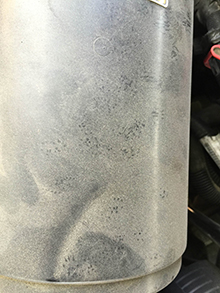 Rodent chewing in vehicles is a common problem now due to the fact that in the mid-1980s, European politicians passed regulations requiring vehicle manufacturers to use plant based and environmentally friendly materials to allow vehicles to be recycled easier. Why would this have anything to do with the U.S. vehicle market? Most U.S. vehicle manufacturers also have a European market. Since it is not cost-effective to produce two different types of vehicles for two different markets, vehicle manufacturers have started introducing plant-based materials in vehicles in the U.S. Soy based components can be found in electrical wire harnesses, wire insulation, seat cushion foam, and in vehicle carpets all over the nation. Average cost of repairing a vehicle from rodent chewing is $600 – $2000 for a single occurrence.
Rodent chewing in vehicles is a common problem now due to the fact that in the mid-1980s, European politicians passed regulations requiring vehicle manufacturers to use plant based and environmentally friendly materials to allow vehicles to be recycled easier. Why would this have anything to do with the U.S. vehicle market? Most U.S. vehicle manufacturers also have a European market. Since it is not cost-effective to produce two different types of vehicles for two different markets, vehicle manufacturers have started introducing plant-based materials in vehicles in the U.S. Soy based components can be found in electrical wire harnesses, wire insulation, seat cushion foam, and in vehicle carpets all over the nation. Average cost of repairing a vehicle from rodent chewing is $600 – $2000 for a single occurrence.
Why a Increase in Snake in the Vehicle Calls?
Another call we receive increasingly more and more, is snake in a vehicle or in the engine compartment. One reason snakes can be found in the engine compartment of the vehicle is simply because they are cold-blooded and will be attracted to warm surface areas. The other reason snakes will be found in a vehicle and the most common reason, is snakes will be going after a food source, which will be rodents. As body oils rub off a rodents fur as they enter the undercarriage of a vehicle, they leave behind scent markings and different pheromones that a snake will pick up on, and follow those same scent markings to the direct opening the rodent has entered. This will directly be related as to why you will find the increase in snake’s being found in vehicles across the country.
How to Stop Rodents From Chewing Electric Vehicle Wires
Vehicle manufacturers, since the increase of wire chewing problems have been searching for answers to give consumers a solution. Some vehicle manufacturers are even offering for sale a rodent repellent tape, treated with a super-spicy capsaicin, thought to repel rodents. While the tape may help a little, rodents can obviously still get under your vehicles undercarriage, and just end up chewing something else that is not been treated with the repellent tape. Dealing with nuisance wildlife for over a decade, I can tell you firsthand, that to eliminate any rodent problem, it is started with the removal of the animal or rodent with the natural behavior pattern of causing those problems. Effectiveness will be short-lived if the animal is still in the area that has chewed on your electric wires of your vehicle. Chances are they will continue to chew. In addition to removing the rodents removing the attractants or body oils that rub off there for is equally important. For professional results of removing rodents from your vehicle contact a Animal Pros specialist today.
How to Remove Rodents From a Vehicle
- Identification of the problem rodent or animal.
- Inspection of nesting and damage.
- Magnetic rodent traps placed strategically in engine compartments or in under carriage. Specific animal traps placed if larger animal.
- Removal of scent markings, pheromones, and body oils, that continually attracts them.
- Removal of nesting and debris.
- Long term rodent control measures if needed.

